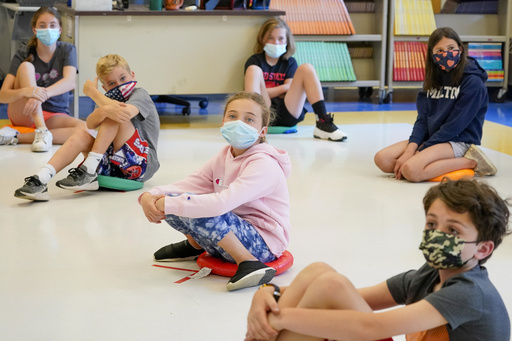
As schools across the nation reopen for a new academic year, there is a heightened focus on improving student attendance, especially in light of the ongoing COVID-19 pandemic. The impact of the pandemic on school attendance has been significant, with nearly 1 in 4 students classified as chronically absent, missing 10% or more of the academic year.
One of the contributing factors to the high rates of absences is the lingering caution among parents following years of COVID-19 quarantines. Parents are now more careful about sending their children to school when they exhibit signs of illness, fearing potential contagion among classmates.
Efforts are being made to shift the culture around sick days in schools to ensure that students can stay on track academically. The Centers for Disease Control and Prevention’s guidance on COVID-19 has evolved over time, with current recommendations aligning the virus with other respiratory illnesses like the flu and RSV.
When it comes to determining if a child is too sick for school, the general rule is that a child with a fever should stay home until they have been fever-free for 24 hours without medication. Other symptoms, such as a runny nose, headache, or cough, may be permissible if the child’s condition is improving. However, severe symptoms or symptoms that persist should prompt a call to the child’s doctor.
Guidelines regarding vomiting and diarrhea may vary among school districts, but the general advice is for students to stay home until these symptoms subside. Schools like the Los Angeles Unified School District have specific criteria for determining when a child should stay home based on their symptoms.
Although masks and social distancing are no longer mandated by the CDC, they are still encouraged for an additional five days after returning to school to prevent disease spread. Experts also recommend frequent handwashing, maintaining cleaner air indoors, and staying up to date on health examinations and immunizations to minimize further school absences.
